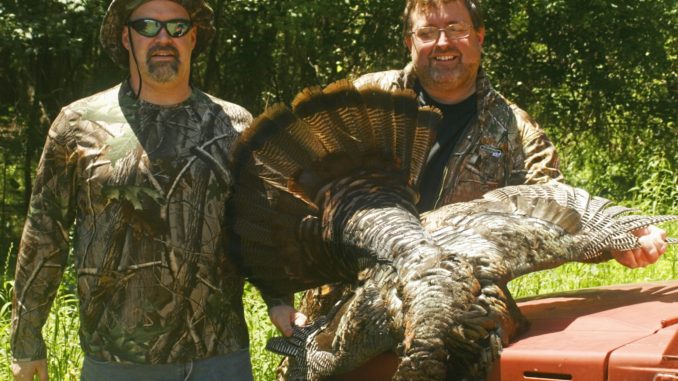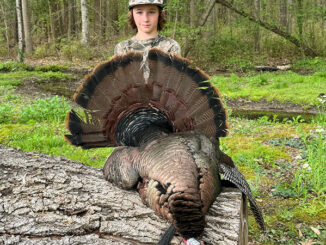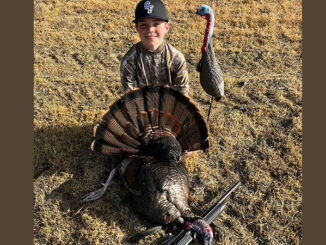
Equipment needed when hunting wild turkeys remains the same, with only a few exceptions, in northeastern North Carolina.
Full camouflage is required, including face masks and gloves, to avoid the keen eyesight of turkeys.
Guide Clark Purvis likes a special camo outfit, a ghillie suit — camouflage with a leafy covering. Wearing a ghillie suit, he can sit in front of a tree trunk and appear to be a bush.
“I’ve bought ghillie suits for all my clients this year,” he said.
Yet a ghillie suit won’t solve a problem that actually can be dangerous to a hunter’s health — ticks. Ubiquitous in the woods during spring, they may transmit illnesses such as Lyme disease and Rocky Mountain Spotted Fever, both painful to overcome and occasionally fatal.
Before he enters the woods, Purvis sprays his clothing, boots and headgear with Permethrin, a compound that should be allowed to dry on clothing and never applied directly to bare skin.
“It keeps ticks off and mosquitoes, too,” he said.
If he’s going to put clients in a blind, he’ll spray the ground around it with Roundup to kill poison ivy, poison oak and sumac before the season.
“I also try not to walk in pine straw areas that have redbugs (chiggers),” he said.
Purvis scatters Sevin dust on the ground to kill chiggers around his blinds.
“It’s a good idea to tuck pants legs into boots (to keep ticks from crawling up legs),” he said. “Then, check your body closely after you get back home and shower.”




Be the first to comment